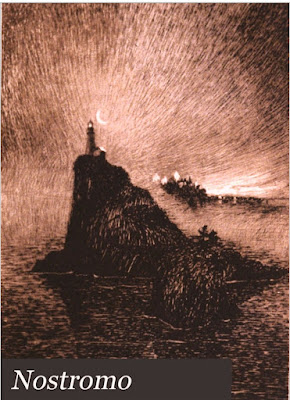Candide
(1759)
by Voltaire
As a boy, Candide was taught that everything in the world happens for a reason: that things good and bad serve their purpose in the grand scheme of it all. But as he ventures out into the world and comes face to face with hardships and sufferings, Candide begins to wonder if this optimistic philosophy is a manifestation of ignorance and indifference.
Underneath this coming-of-age story is Voltaire’s brave effort to hold a mirror up to society, and make it examine its flaws. Hardly any author in his time dared to oppose the accepted virtues of the educated class — Voltaire even refused to take credit for this masterpiece until years after the publication — and none did it with as much wit and passion as Voltaire did.
INTRODUCTION
Ever since 1759, when Voltaire wrote "Candide" in ridicule of the notion that this is the best of all possible worlds, this world has been a gayer place for readers. Voltaire wrote it in three days, and five or six generations have found that its laughter does not grow old.
"Candide" has not aged. Yet how different the book would have looked if Voltaire had written it a hundred and fifty years later than 1759. It would have been, among other things, a book of sights and sounds. A modern writer would have tried to catch and fix in words some of those Atlantic changes which broke the Atlantic monotony of that voyage from Cadiz to Buenos Ayres. When Martin and Candide were sailing the length of the Mediterranean we should have had a contrast between naked scarped Balearic cliffs and headlands of Calabria in their mists. We should have had quarter distances, far horizons, the altering silhouettes of an Ionian island. Colored birds would have filled Paraguay with their silver or acid cries.
Dr. Pangloss, to prove the existence of design in the universe, says that noses were made to carry spectacles, and so we have spectacles. A modern satirist would not try to paint with Voltaire's quick brush the doctrine that he wanted to expose. And he would choose a more complicated doctrine than Dr. Pangloss's optimism, would study it more closely, feel his destructive way about it with a more learned and caressing malice. His attack, stealthier, more flexible and more patient than Voltaire's, would call upon us, especially when his learning got a little out of control, to be more than patient. Now and then he would bore us. "Candide" never bored anybody except William Wordsworth.
Voltaire's men and women point his case against optimism by starting high and falling low. A modern could not go about it after this fashion. He would not plunge his people into an unfamiliar misery. He would just keep them in the misery they were born to.
But such an account of Voltaire's procedure is as misleading as the plaster cast of a dance. Look at his procedure again. Mademoiselle Cunégonde, the illustrious Westphalian, sprung from a family that could prove seventy-one quarterings, descends and descends until we find her earning her keep by washing dishes in the Propontis. The aged faithful attendant, victim of a hundred acts of rape by negro pirates, remembers that she is the daughter of a pope, and that in honor of her approaching marriage with a Prince of Massa-Carrara all Italy wrote sonnets of which not one was passable. We do not need to know French literature before Voltaire in order to feel, although the lurking parody may escape us, that he is poking fun at us and at himself. His laughter at his own methods grows more unmistakable at the last, when he caricatures them by casually assembling six fallen monarchs in an inn at Venice.
A modern assailant of optimism would arm himself with social pity. There is no social pity in "Candide." Voltaire, whose light touch on familiar institutions opens them and reveals their absurdity, likes to remind us that the slaughter and pillage and murder which Candide witnessed among the Bulgarians was perfectly regular, having been conducted according to the laws and usages of war. Had Voltaire lived to-day he would have done to poverty what he did to war. Pitying the poor, he would have shown us poverty as a ridiculous anachronism, and both the ridicule and the pity would have expressed his indignation.
Almost any modern, essaying a philosophic tale, would make it long. "Candide" is only a "Hamlet" and a half long. It would hardly have been shorter if Voltaire had spent three months on it, instead of those three days. A conciseness to be matched in English by nobody except Pope, who can say a plagiarizing enemy "steals much, spends little, and has nothing left," a conciseness which Pope toiled and sweated for, came as easy as wit to Voltaire. He can afford to be witty, parenthetically, by the way, prodigally, without saving, because he knows there is more wit where that came from.
One of Max Beerbohm's cartoons shows us the young Twentieth Century going at top speed, and watched by two of his predecessors. Underneath is this legend: "The Grave Misgivings of the Nineteenth Century, and the Wicked Amusement of the Eighteenth, in Watching the Progress (or whatever it is) of the Twentieth." This Eighteenth Century snuff-taking and malicious, is like Voltaire, who nevertheless must know, if he happens to think of it, that not yet in the Twentieth Century, not for all its speed mania, has any one come near to equalling the speed of a prose tale by Voltaire. "Candide" is a full book. It is filled with mockery, with inventiveness, with things as concrete as things to eat and coins, it has time for the neatest intellectual clickings, it is never hurried, and it moves with the most amazing rapidity. It has the rapidity of high spirits playing a game. The dry high spirits of this destroyer of optimism make most optimists look damp and depressed.[Pg xi] Contemplation of the stupidity which deems happiness possible almost made Voltaire happy. His attack on optimism is one of the gayest books in the world. Gaiety has been scattered everywhere up and down its pages by Voltaire's lavish hand, by his thin fingers.
Many propagandist satirical books have been written with "Candide" in mind, but not too many. To-day, especially, when new faiths are changing the structure of the world, faiths which are still plastic enough to be deformed by every disciple, each disciple for himself, and which have not yet received the final deformation known as universal acceptance, today "Candide" is an inspiration to every narrative satirist who hates one of these new faiths, or hates every interpretation of it but his own. Either hatred will serve as a motive to satire.
That is why the present is one of the right moments to republish "Candide." I hope it will inspire younger men and women, the only ones who can be inspired, to have a try at Theodore, or Militarism; Jane, or Pacifism; at So-and-So, the Pragmatist or the Freudian. And I hope, too, that they will without trying hold their pens with an eighteenth century lightness, not inappropriate to a philosophic tale. In Voltaire's fingers, as Anatole France has said, the pen runs and laughs.
About the Author
François-Marie Arouet (French: [fʁɑ̃swa maʁi aʁwɛ]; 21 November 1694 – 30 May 1778), known by his nom de plume Voltaire (/vɒlˈtɛər, voʊl-/; also US: /vɔːl-/; French: [vɔltɛːʁ]), was a French Enlightenment writer, historian, and philosopher famous for his wit, his criticism of Christianity—especially the Roman Catholic Church—and of slavery, as well as his advocacy of freedom of speech, freedom of religion, and separation of church and state.
Wikipedia
Buy Voltaire Books at Amazon
The PDF might take a minute to load. Or, click to download PDF.
If your Web browser is not configured to display PDF files.
No worries, just click here to download the PDF file.









.jpg)

.jpg)
%20(1).jpeg)
.jpg)
